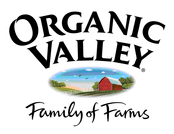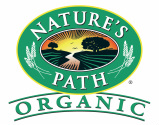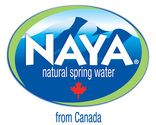|
|
|

Why Buy Organic Flowers?
· Whenever you touch or inhale the scent of your non-organic flowers, you are likely touching or inhaling poisonous chemicals. When you buy organic flowers, you will not have to worry about chemicals on your flower bouquets being toxic to your children, other members of your family, or yourself. · The main goal of organic agriculture is to farm in ways that do not harm the environment, while there is no such motive for most non-organic farms. · Buying organic flowers helps support local organic farming communities and organizations, which often have charitable, philanthropic motives for selling their flowers. · Organic flowers, according to many people, last longer than non-organic ones. · On a spiritual, holistic level, organic flowers have been farmed in such ways that they retain the essence of flowers, as Mother Nature intended them to have. · Organic flowers are a natural part of a healthy, natural lifestyle. · Pesticides and other toxic chemicals used on flowers affect the health of farm workers and florists. The toxic chemicals spread onto the clothes and into the bodies of farm workers and their children. Florists who handle non-organic flowers have been known to develop dermatitis on their hands. · According to an article on newdream.org, studies have shown that 50 % of workers in the Costa Rica flower industry have symptoms of pesticide poisoning. Areas surrounding flower farms there have higher miscarriage and birth defect rates than do other areas. · The toxic chemicals used on flower farms poison groundwater and the soil. These chemicals also become part of the food chain, as animals such as birds will eat the sprayed plants. In the course of their seasonal migrations, these birds will spread these chemicals globally. · Through evaporation, toxic pesticides and fertilizers that are sprayed on flower farms end up in the atmosphere. They then travel to other global areas to fall as rain or snow. · Every flower counts: Increasing sales of certified organic flowers gives the market notice that more organic flowers need to be grown, which makes more flower farms convert to using organic agricultural methods. A list of companies selling Fair Trade and Organic flowers and chocolate and paperless / recycled cards and gifts. Whenever possible, buy local (many of these sites can lead you to local, independent retailers) Order a Global Exchange Valentines Action Kit Flowers
Gifts
But what if these tokens of romantic affection mean something more sinister than the celebration of love and friendship? What if the production of these goods comes at a grave cost for the people directly connected to them? The term “blood roses” might not mean much to the many Americans who will purchase long stem red roses by the dozen this Valentine’s Day. But, to those laborers involved in the growing, cleaning and shipping of cut flowers in Ecuador and Columbia, the term represents the adverse health effects and environmental degradation that have become synonymous with the regions’ cut flower industry. The U.S. imports the bulk of its cut flowers from Ecuador and Columbia, where toxic pesticides are used heavily. The laborers (60 percent of whom are women) handling these flowers, whether in the fields or when getting them ready for transport by bathing them in chemicals to kill off insects and mildew, are in direct, daily contact with toxic pesticides. A 2006 study conducted in northern Ecuador and published in Pediatricsconcluded that prenatal pesticide exposure was linked to lasting neurotoxic damage and malnutrition of children in developing countries. Other studies have shown that women exposed to pesticides have a much higher rate of pregnancy loss than that of unexposed women. Frequently reported symptoms of pesticide inhalation and exposure include headaches, dizziness, rashes, nausea, blurred vision, infertility, low sperm count, diarrhea, birth defects and still births. Not right, right? But, there is a solution: Use your American dollar to demand improved working conditions for these laborers and buy organic flowers. Increased demand for organic flowers that are grown in suitable working environments by adult laborers could lessen adverse environmental and health impacts suffered by many cut flower laborers. Recently, Europe has created a demand for organic cut flowers and, as a result, more sustainable farming and flower production practices are developing in major flower producing provinces. So far, however, the U.S., which imports one-third of its cut flowers from Ecuador alone, has not demonstrated any substantial demand for organic cut flowers or called for better working conditions for the laborers who produce the beautiful flowers that Americans treasure. In the case of Ecuadorean and Columbian cut flowers, which grow easily in the Andean climate, demand trumps supply. If the American people follow the Europeans’ lead in demanding organic, fair trade flowers, and don’t mind paying an extra or dollar or so a dozen, then a shift toward a less “bloody” and a more sustainable future might exist for the people involved in the production of the beautiful flowers that have come to represent a token of affection to most Americans. Today: Pass this information along to a friend, lover, colleague or stranger in the grocery store. This Week: Buy your special someone organic, fair trade Valentine’s flowers (and chocolate!) This Year: Learn more about the production issues surrounding cut flowers and other imported products that you and your family consume regularly. Oh, and have a Happy, Eco-Friendly Valentine’s Day!! Learn how you can make a difference for the planet with sustainability videos on GaiamTV.com. |
|







